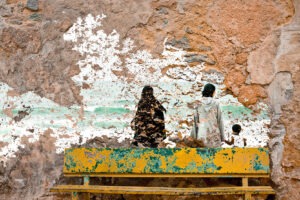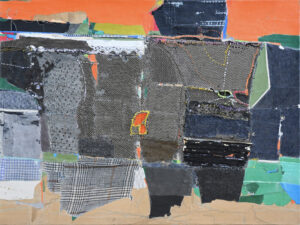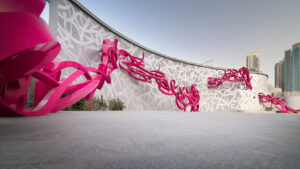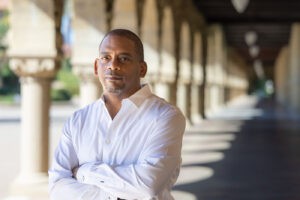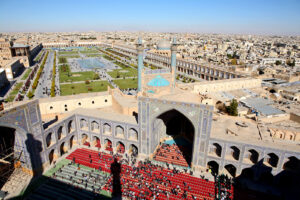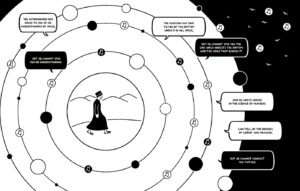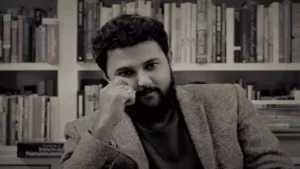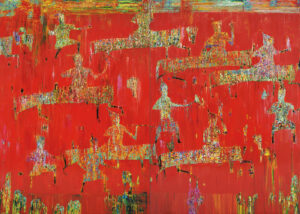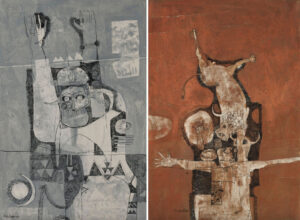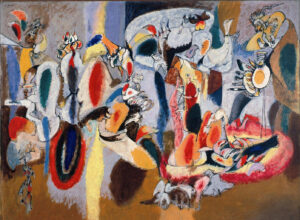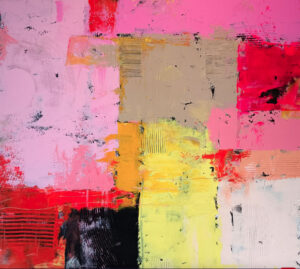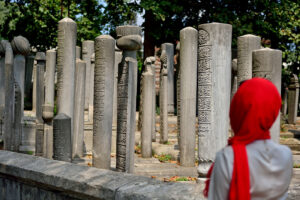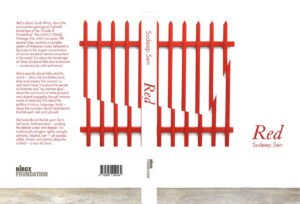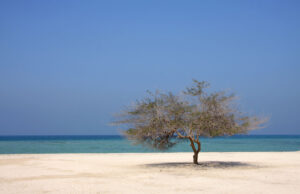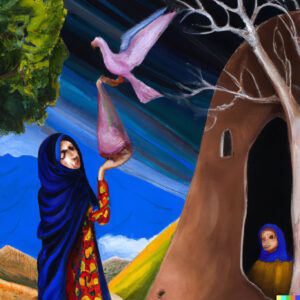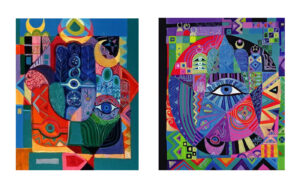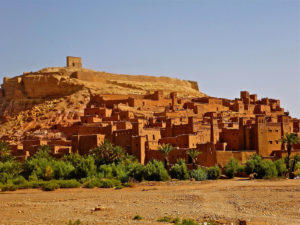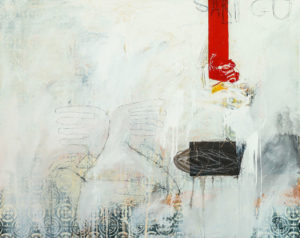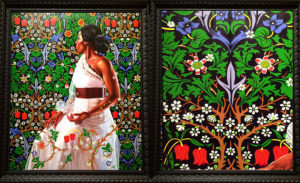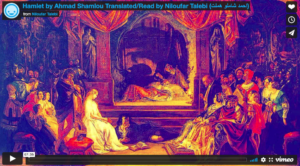The Palace of Forty Pillars narrates the journey of a self-estranged gay adolescent, exploring his identity as an Armenian in Iran and later as an immigrant in America.
The Palace of Forty Pillars by Armen Davoudian
Tin House 2024
ISBN 9781959030362
Near the beginning The Palace of Forty Pillars, Armen Davoudian serves a cup of unfiltered coffee:
Soorj
Planted, ripened, hand-picked, dried,
seeded, skinned, polished, and sorted,
lesser crops disqualified,
the balance graded and exported,
tasted, or rather analyzed
by slurping, then expectorated,
roasted until pyrolyzed,
ground up, potted, irrigated,
simmered, poured, sipped, and inverted,
sedimented and reverted,
read and wildly fabricated
(happy or sad, single or mated)
and if illegible, no matter:
the future’s always black and bitter.

Here is the story of soorj, Armenian coffee, from bean to cup to ritual reading of the future in muddy grounds. “Soorj” serves as a compelling and compact introduction to The Palace of Forty Pillars, Davoudian’s debut poetry collection. In miniature, it showcases Davoudian’s formal dexterity: the poem is both a sonnet, a form favored throughout Forty Pillars, and a list poem, packed with and paced by past participles: a vigorous, condensed form befitting its concentrated, bitter subject. The list of past participles, adjectives of the past tense, lasts until the final couplet, and the last line, delivered in the present tense, invokes the future. In so doing, the poem introduces one of the collection’s central themes: that the past endures in the present, and that in its dark sediment lurks a bitter future. Past, present, and future jostle and overlap in Davoudian’s poetry; humor cuts bitterness like sugar in soorj.
Davoudian, an Armenian, grew up in Isfahan, Iran, before moving to the United States, where he is a PhD candidate in English at Stanford University. His poetry emerges out of the bifurcations and distances of the emigrant experience, of a home made and split between, as he puts it in a later poem, “ill-matched countries.” The poems of The Palace of Forty Pillars work to collapse distances between disparate worlds and their inhabitants: the distance between homeland and home; the distance between family here and there, here and gone; the distance between lovers separated by cultural prohibitions on love’s expression.
In “Coming Out of the Shower,” the book’s first poem, a shower trips a memory of the shower in his family’s old home. Like many of the poems in The Palace of Forty Pillars, “Coming Out of the Shower” conjugates memories into the present to superimpose the past onto the here and now; it operates in two places and two times in tandem. Far from his mother and old home, the speaker transforms absence into presence:
This time, it’s really you. I’m really here.
I blink. We do not disappear.
Dad left, you say, to shower at the shop
so I don’t need to stop
just yet—and yet I do, unable to
resume old customs, unlike you.
In a one-bath four-person household, we
learn what we mustn’t see,
growing, in time, so coolly intimate
with one another’s silhouette
behind the opaque frosted shower screen
that once more stands between
us two.
Yet, while the poem closes geographic distances with ease, a smaller distance remains that cannot be traversed. Partitions separate mother and son as they navigate life in close quarters: the bathroom, with its “opaque frosted shower screen,” through which only silhouettes are visible, and the prejudices that dictate what family “mustn’t see.” It is here that the “coming out” of the poem’s title resonates with new meaning, as the enforced distance between mother and son over sexual orientation prevents the son from sharing his life in full, instead of in silhouette, and the mother from loving without reservation:
Mama, I shout, I’m coming out.
and as you look away I knot
around me tight your lavender robe de chambre,
cinching my waist, and clamber
out of the tub, taking care not to step
outside the cotton mat and drip
on the cracked floor you’ve polished with such zeal
we’re mirrored in each tile.
Yet, you’d forgive the spillage, or forget.
What else will you love me despite?
The Palace of Forty Pillars is structured around two significant sonnet cycles. In the first, “The Ring,” the poems are interlaced in a garland, with each sonnet’s last line becoming the first line of the next. The formal circularity accompanies the work’s circular chronology, as the poems leap back and forth through the poet’s life. “The Ring” begins at a wedding reception near the present, where the speaker tries on his father’s wedding ring, “a hand-me down / keepsake from his own father, now no longer.” By the end of the sonnet and beginning of the next, the setting moves to Isfahan, 1989, and a wedding with “double the hairspray”: the poet’s parents’. That poem ends with a wish to dissolve the distances of past and present, there and here: “I wish I could have been there by their side.”
In the third sonnet of “The Ring,” which shuttles from 1989 to the present, the past lingers in the figure of the grandfather. The poet seeks to summon his late grandfather’s voice, call the past into the present on speakerphone, and listen to his unkind assessment:
“Stop that kid from reading. He’ll go blind.”
Unhappy in his body, the kid’s all mind,
or so he thinks, turning from life to books,
because he’ll never get by on his looks?
He loves his mother and other boys too much
and everything he says will come out botched.
Was it for this they abandoned everything
in the Islamic Republic of Iran?
In a cunning turn, Davoudian takes the grandfather’s question and, in the next sonnet, transposes it to the voice of former Iranian president Mahmoud Ahmadinejad—who, at a 2007 forum at Columbia University, when asked about Iran’s death penalty for gay people, said, “In Iran, we don’t have homosexuals like in your country. In Iran, we do not have this phenomenon”:
In the Islamic Republic of Iran,
we do not have such a phenomenon.
The West is stealing clouds from Persian skies.
Death to America! Militarize!
Close all the mosques, lock up all the prayers
in a No-Fly list to justify our wars.
My ill-matched countries, ‘tis of you I sing,
as bombs and rockets bursting on the air-
waves and our screens give proof to your common cause
that flags exist, that god is still out there
somewhere.
Recast the self-fulfilling ring
Auden forecast Bin Laden by: that those
to whom evil is done, must do preemptive evil—
the nonsense palindrome whereby we live.
With its comic imperatives and remixed samples from “The Star Spangled Banner” and “My Country, ‘Tis of Thee,” the sonnet becomes the impossible anthem of a dual citizen of warring nations. There are two “nonsense palindrome[s]” at work: the final couplet’s “evil” and “live,” and the poem’s reworking of W.H Auden’s lines from “September 1, 1939”: “Those to whom evil is done / Do evil in return,” which Auden wrote on Germany’s invasion of Poland to start World War II, and which Davoudian retrofits for Bush and Bin Laden.
The culminating sonnet of “The Ring” is built of these “nonsense palindromes,” and opens on the theme of the inalterable movement of time:
The nonsense palindrome whereby we live
the future as already past, backWARD,
fooled even Shakespeare. No poet can reDRAW
or EDIT the TIDE of TIME alMIGHTy, no VERSE
reVERSE the flow or add to the reSERVE
of hours trickling through the cracks.
Davoudian addresses the reader in the second half, and makes clear his poetic purpose: while the “tide of time” may resist editing, in his work, the past is unwound and rewound and reworked. The poem speaks to poetry’s ability to sustain the past in the present and into the future—to endure, like a ring passed down through generations:
But DEAR
READer, as we hang briefly on this thREAD,
I feel in my GUT the TUG of each dark LINE
made taut before it breaks against thE NIL
margin where all life goes. And so I’ll LOOP
the unwinding tapes back onto the sPOOL
of my one reel, my father’s wedding RING,
admitting I was wrong, and with a GRIN,
accept the future I’ve been given to live.
The volume’s second cycle, “The Palace of Forty Pillars,” with twenty sonnets, is the collection’s heart and ballast. The title invokes Chehel Sotoun, a 17th century palace in Isfahan whose twenty pillars, set before a large pool, are made forty by reflection. Motifs of duplication and bifurcation and partition cut through the sequence, as Davoudian delineates how an emigrant’s life splits between locations, how presence in a new home is absence in another. A boy stands before the pool at Chehel Sotoun:
Twenty pillars drip into the pool
their likenesses, where the likeness of a boy
wavers among the clouds, eyeing the boy
who’s waiting for another. All is dual:
two rows of roses frame the pool, in twos
the swans glide, each on another’s breast, then fuse
in a headless embrace. All is dissolved:
the boy outside the water is no more
a boy inside the water—his no more
the face defaced by its own lines on shattered
waves overlapping like a rose, the tattered
pillars strewn like petals. All is halved,
severed, like home and school, like love and being
loved—the boy no more than a way of seeing.
All is dual. All is dissolved. All is halved. There and not there, duplicated and halved and dissolved, the boy’s very presence before the pool is tenuous—as if to say that one who leaves a homeland never fully resettles into an existence, and is reduced to a disembodied form, a “way of seeing” that is never seen.
As the sequence moves on, poems of Isfahan yield to poems of departure and loss. A dove’s fatal collision with a window opens sonnet ten:
And then a rock dove, astonished midair, dove
from its own ghost that stamped upon the pane,
in dovetailed detail, a short-lived afterlife,
before it all came avalanching down
and I was left to split the difference
between transparence and sheer emptiness.
Lifting a palm, I spread it on the pane
of your still-lifted palm, spreading in pain
behind the far side of the fading moon
of breath now misting up the wall of glass
which splits the terminal in half. Isfahan
nesfe jahan, you’d boast, lifting a glass.
If you’ve seen Isfahan, then you’ve seen half
the world. I’ll see you in the other half.
The poem pivots halfway through: the pane of glass on which the dove stamps its ghost transforms first into the hand of the poet’s grandfather, then into an airport terminal’s glass partition. This is the moment the poet departs Iran, leaving his grandfather, who promises a reunion that never comes, and whose absence echoes plaintively throughout the collection. The poem attends to the partitions that separate the emigrant from those who remain, the dove a reminder that departure is one-way, that one never reaches a destination in tact. Except, that is, in poetry: for Davoudian, poetry has the power to summon family from disparate geographic and chronological locations, to fulfill his grandfather’s promise.
Despite the emotional gravity of The Palace of Forty Pillars, Davoudian’s poetry retains a playfulness, and his work achieves a stirring, lyrical power at its most ludic. Near the end of the sequence comes a poem that employs only the letters of “pomegranate”:
Granpa no more, granma no more, nor mama
nor papa near. Amo ergo pango.
O pomegranate, tear apart to rap
a protean argot to a tap-tap meter
(no monotone) to trap me a meager poem.
No tame game nor mere program. Tap an engram
to reap a pomegranate anagram
to earn me peer agon. Part ear, part peep.
Part open, part tangram. Part germane, part perm.
To amo pero no me ama’. Mope not.
O pomegranate, grant me great amor
(not agapē) ere ego am no man.
O garnet page, O mater mea eterna,
name me Armen, name me poet. Amen.
Davoudian foregrounds the sonnet’s formal apparatus, while, with a deft hand, depicting the transmutation of loss and absence and distance into poetry—and no where so much as at the second line’s end, which in three words captures the genesis and charm of Davoudian’s poetry. Amo ergo pango: I love therefore I compose.





